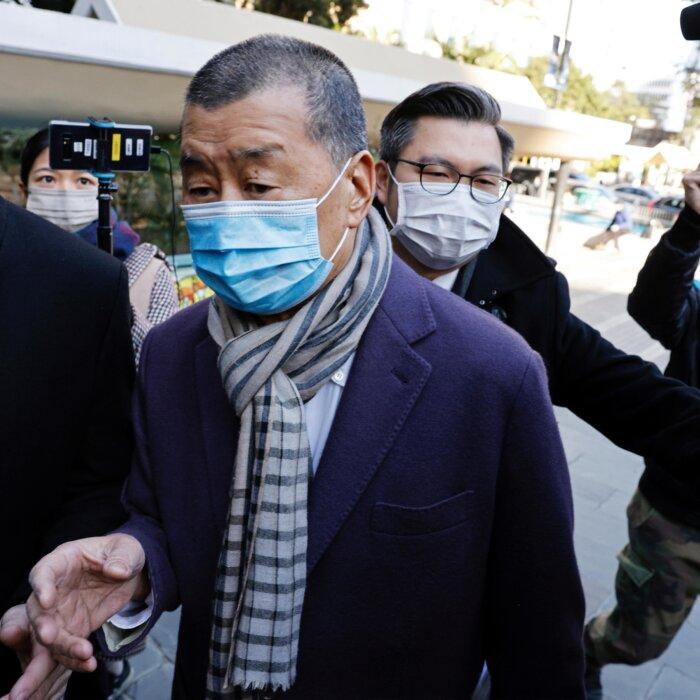Hong Kong’s top court on Aug. 12 rejected a bid to overturn the convictions of seven prominent pro-democracy activists, including media mogul Jimmy Lai, for their roles in 2019 protests.
Lai, 76, founder of the now-defunct liberal newspaper Apple Daily; Martin Lee, 86, founding chairman of Hong Kong’s Democratic Party; and five other activists were convicted in 2021 for their roles in an unlawful assembly in August 2019, when nearly 2 million people rallied on the streets.
A lower court last year overturned their convictions for organizing the rally, although it upheld their convictions for participating in it.
The defendants had argued that the trial judge should have conducted an “operational proportionality” assessment to determine whether their conviction was proportionate to human rights protections.
That principle is set in two nonbinding decisions of Britain’s Supreme Court. The defendants also argued that the judge should have taken into account that “the procession did not descend into violence.”
A panel of five judges at the Court of Final Appeal on Aug. 12 unanimously rejected the defendants’ argument, ruling that their proposition was “unsustainable” and “unsupported by legal authority.”
Chief Justice Andrew Cheung and Judge Roberto Ribeiro said in the main judgment that the British court’s decisions shouldn’t be followed in Hong Kong because of differing legal frameworks in the two jurisdictions.
“A separate proportionality inquiry in relation to arrest, prosecution, conviction, and sentence is inappropriate and uncalled for.”
The 2019 pro-democracy protests were spurred by Beijing’s tightening squeeze on wide-ranging freedoms promised to Hong Kong upon its return to Chinese rule in 1997. They plunged the semi-autonomous city into its biggest crisis since the handover.
The other defendants include Margaret Ng, 73; Lee Cheuk-yan, 64; Albert Ho, 69; Leung Kwok-hung, 65; and Ho Chun-yan, 66.
Lai, a British citizen, has been held in solitary confinement since December 2020. He is serving a sentence of five years and nine months for a charge of violating a lease contract for the newspaper’s headquarters.
Beijing imposed a sweeping national security law following the protests, which punishes what the Chinese Communist Party (CCP) broadly defines as secession, subversion, terrorism, and collusion with foreign forces. Punishment can include a life sentence in jail.
The CCP’s national security law has been condemned by democratic governments around the world and human rights groups as a tool to crush dissent in the semi-autonomous city.







